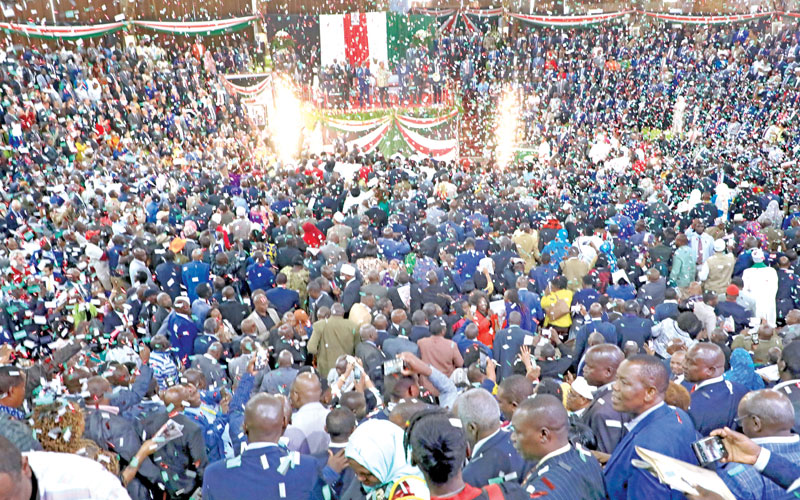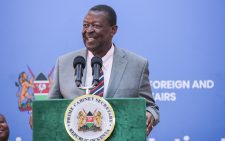BBI should inspire candid national conversation

Over the last one week, I have been part of interesting debates on different social media platforms. My university alumni group, for instance, has been a melting pot of some engaging discourses.
You see, unlike other groups, a university alumnus group has some level of intellectual enterprise that can pull in history, concepts, principles and theories and unpack them in fairly informative fashion.
My group, for instance, comprises former students of Maseno University when the institution was a fairly close knit family.
Discussions in the group at times get polarised, but still intelligent up to the hilt. For instance, the last few days have been about democracy. Africa presents interesting manifestations of democracy.
From the shade of perceived democracy in Uganda and Rwanda to some semblance of autocracy in Burundi where President Pierre Nkurunziza is the alpha and omega of what the constitution dictates; to our own democracy in Kenya, where despite a much freer and expansive public sphere the dominant voices seem to tilt our conversations to ethnocracy.
Granted, democracy seems to be the predominant political system globally and its failures abound in many societies, just like there are leaderships that have failed.
A few disillusioned Kenyans have been calling for autocracy like China, arguing that we are not ready for democracy.
I mean, if politics is about the distribution of resources, then the Chinese model and President Xi Jinping’s poverty alleviation strategy seem to be a great case study.
As a product of the great Greek tradition, democracy has been exported and contextualised in different parts of the globe, but people still talk about the Greek greats like Plato and how what they philosophised and discoursed has failed in their own country.
I hold that the traditional Platonian aristocracy which Plato advocated for was a reaction to the inherent gaps in democracy and not a rejection of democracy.
In his Socratic dialogue, The Republic Plato talks about the state being safe if it is in the hands of a few wise men—strong, educated men with the wherewithal to rule on merit.
Who then, are we giving the power to lead and do they have the traits of great leaders envisioned by Plato? The answer to this question in any democracy is relative and without information.
To this end, whether the BBI goes the parliamentary route or the popular initiative one, a candid public conversation is important as a basis upon which the citizens will have their say in the final bill.
Simply put, democracy should be looked at as a public conversation and our public sphere should provide spaces where the BBI is discussed as a conversation.
Politicians should, therefore, stop all the mumbo jumbo and provide avenues and infrastructure to allow Kenyans to not only read, but also have solid conversations about the report.
There have been calls by leaders, including National Assembly Speaker to have the document taken to the people, ostensibly because the House he heads will mutilate the document.
Despite this unfortunate reality, Kenyans must guard against losing faith in the august House. Parliament is the preeminent institution where our interests ought to be protected.
To this end, as the BBI debate take centre stage, our MPs should seize the moment and redeem themselves and the image of the House by leading us in not only understanding their position on issues, but also the substantive reasons that inform those positions.
Essentially, leadership should not force us to a direction, but help the citizenry to think of the BBI and what is in it for them.
The BBI, therefore, is well poised to give us a platform where we will give the power to lead to those who Plato identified as wise men in whose hands Kenya will be safe. —The writer is PhD candidate, Political Communications








